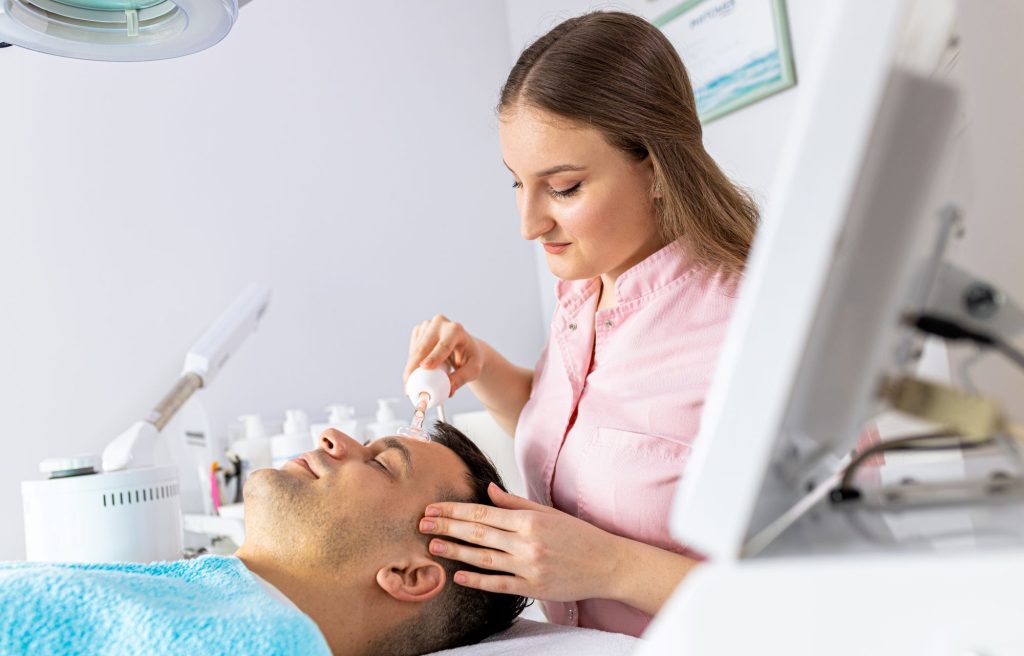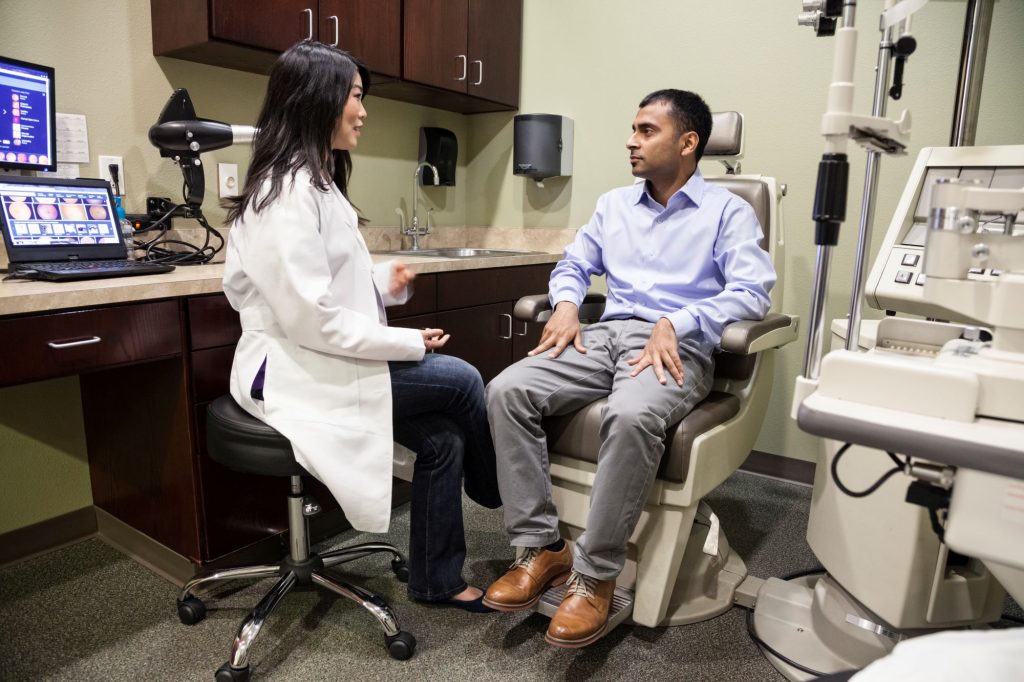Living with Hidradenitis Suppurativa (HS), a painful and chronic inflammatory skin condition, can affect a person’s physical and mental well-being. The Canadian Hidradenitis Suppurativa Foundation recognizes the importance of addressing both the physical and emotional aspects of HS and is committed to providing education, awareness, and practical resources to support the holistic well-being of HS patients.
In this article, we will discuss the connection between Hidradenitis Suppurativa and mental health, highlighting the emotional challenges individuals with HS may face and the potential impact on their overall quality of life. We will also explore evidence-based strategies for coping with these psychological challenges and building resilience in adversity. By providing education and practical guidance on mental health strategies, the Canadian Hidradenitis Suppurativa Foundation aims to empower individuals with HS to lead fulfilling, balanced lives despite the challenges of this complex condition.
The Canadian Hidradenitis Suppurativa Foundation acknowledges that managing a chronic health condition like HS is about more than just physical wellness — it also requires addressing psychological well-being. With a comprehensive approach that encompasses the emotional and mental health needs of individuals affected by HS, the foundation is dedicated to providing the necessary support, resources, and encouragement to help patients navigate the complexities of life with HS.
Understanding Hidradenitis Suppurativa
Also known as acne inverse, Hidradenitis Suppurativa (HS) is a chronic inflammatory that causes painful, inflamed lumps. These lumps, or nodules, typically develop in areas where skin rubs together, such as the armpits, groin, buttocks, and under the breasts. HS can start as small, pea-sized bumps and progress to larger abscesses that may rupture and leak pus, leading to uncomfortable, sometimes debilitating, pain. Over time, these nodules can form tunnels under the skin, resulting in scarring and permanent skin changes.
Common symptoms of HS include:
· Painful, swollen lumps
· Abscesses that may rupture and drain pus
· Blackheads appearing in small clusters
· Tunnels (sinus tracts) under the skin
· Scarring and thickened skin
Causes and Risk Factors
Doctors and health professionals aren’t sure of the exact cause of HS, but it is believed to result from genetic, environmental, and lifestyle factors. Here are some of the causes of HS:
Genetics: Family history plays a significant role in HS. If you have close relatives with HS, you are more likely to develop the condition, suggesting a genetic predisposition to the disease.
Immune System Dysfunction: HS is thought to be linked to an overactive immune response. Inflammation of the hair follicles and sweat glands leads to the formation of the painful nodules and abscesses typical of HS.
Hormones: Hormonal fluctuations can influence HS. The condition often begins after puberty, suggesting a link to hormonal changes. Women may experience symptom flare-ups related to their menstrual cycle.
Obesity: Excess weight is a significant risk factor for HS. The condition often affects areas with skin-to-skin contact, and obesity can exacerbate this friction, increasing the likelihood of flare-ups.
Smoking: Smoking is strongly associated with HS. It is believed that the toxins in tobacco can trigger or worsen the inflammatory processes involved in the condition.
Bacterial Infections: While not a direct cause, bacterial infections can complicate HS, leading to more severe symptoms and additional skin problems.
The Connection Between Hidradenitis Suppurativa and Mental Health

Chronic Pain and Emotional Struggles
Patients with hidradenitis suppurativa often experience persistent pain, which can significantly impact their emotional and psychological well-being. The physical discomfort can be intense, with symptoms ranging from itching and burning to severe pain from abscesses and boils. This constant physical pain takes a toll on mental health. Chronic pain often leads to frustration, irritability, and a sense of helplessness. Over time, this can cause significant emotional distress, making it hard to enjoy daily activities and maintain a positive outlook.
Social Isolation and Stigma
Hidradenitis Suppurativa (HS) significantly impacts lives beyond being a skin condition. It affects patients’ social interactions due to visible symptoms like open sores and scars that often attract negative comments, leading to embarrassment and social withdrawal. This isolation increases due to societal stigma, contributing to loneliness and potentially severe mental health issues, including depression and anxiety.
Impaired Quality of Life
HS can interfere with daily activities, employment, and interpersonal relationships, reducing the quality of life for those affected. This disruption in routine and personal accomplishments may contribute to feelings of hopelessness, frustration, and emotional distress.
Depression and Anxiety Linked with HS
HS causes psychological burn, which can contribute to depression and anxiety. The chronic nature of HS means the flare-ups can occur unpredictably, creating a persistent state of worry and stress. Patients often experience anxiety over when the next flare-up will happen and how severe it will be. This constant anticipation can lead to heightened stress levels and anxiety disorders.
Depression is also common among HS patients. The pain, stigma, and isolation can lead to feelings of hopelessness and despair. Many HS survivors report a loss of interest in activities they once enjoyed and struggle with persistent low moods. The chronic pain and fatigue associated with HS further contribute to these depressive symptoms, creating a vicious cycle of physical and mental health issues.
Impact of hidradenitis suppurativa on Self-Esteem and Body Image
Living with Hidradenitis Suppurativa (HS) can deeply impact one’s self-esteem and body image. This skin condition is known for its visible scars, lumps, and often drastic alterations to the skin, which can significantly change how a person looks. These physical manifestations may lead individuals to struggle with self-consciousness and dissatisfaction with their bodies. The apprehension over potential judgment or rejection due to their appearance can be particularly distressing, leaving many feeling unattractive or unworthy.
Low self-esteem is indeed a common problem for patients with hidradenitis suppurativa . The ongoing battle with these visible symptoms can progressively wear down one’s confidence, creating barriers in day-to-day life, social interactions, relationships, and professional or educational endeavors. The psychological toll of feeling “different” due to HS can be substantial, influencing virtually every facet of an individual’s life.
Strategies for Managing Mental Health with HS

Engage in Professional Support
Seeking the assistance of mental health professionals, such as therapists, psychologists, or psychiatrists, can be an invaluable step in addressing the emotional and psychological challenges of living with HS. These professionals can provide tailored guidance and coping strategies and prescribe medications, if necessary, to help manage symptoms like anxiety and depression more effectively. Therapy provides a safe space to express frustrations and fears, making it an aspect of overall well-being.
Several therapies can be particularly beneficial to patients with hidradenitis suppurativa . Acceptance and commitment therapy (ACT) encourages HS patients to accept their conditions while embracing actions that can improve their quality of life. On the other hand, Cognitive-behavioural therapy ( CBT) helps in identifying and changing negative thought patterns and behaviors. Such mindfulness-based therapies can be effective, encouraging relaxation and stress reduction.
Role of Family and Friends
In navigating the complexities of HS, the support and understanding of family and friends become invaluable. Open communication to share the intricacies of your condition does more than just inform; it invites those close to you to walk beside you in your journey. By educating your loved ones about the nuances of HS, you illuminate the daily challenges, fostering a deeper connection and empathy. This knowledge empowers them to offer support that is well-informed and profoundly impactful. The encouragement and comprehension from those we hold dear can be a potent salve for the emotional turbulence wrought by HS, uplifting our spirits and bolstering our resilience.
Connect with a Supportive Community
Joining a support group, in-person or online, can provide comfort, encouragement, and practical advice from others who understand the unique challenges of patients with hidradenitis suppurativa
Support groups and online communities provide a space to share your experiences, seek advice, and find solidarity. Such platforms can be a reliable source of practical tips in navigating and managing daily life with HS. Connecting with fellow HS patients can help reduce isolation and provide valuable emotional support.

Practice Mindfulness and Relaxation Techniques
Incorporating mindfulness practices, such as deep breathing, meditation, or progressive muscle relaxation, into daily routines can help manage stress and promote emotional well-being. Engaging in these relaxation techniques may also reduce the severity or frequency of HS flare-ups triggered by stress.
Seek Balance and Prioritize Self-Care
Creating balance in life by prioritizing self-care, setting realistic expectations, and maintaining a healthy work-life balance can positively contribute to mental health and overall well-being. This may involve setting aside time for hobbies or activities that bring joy, fulfillment, and stress relief, and advocating for personal needs in relationships and work environments.
Balanced Diet and Exercise in HS Management
To manage HS effectively, it’s important to maintain a balanced diet and stay active. Eating lots of anti-inflammatory foods like fruits, veggies, and whole grains can make a difference in reducing inflammation. Besides, avoiding processed foods, sugary beverages, and dairy products is wise, as they may not help your condition. On top of eating well, keeping up with regular exercise not only enhances your overall health and mood but also plays a key role in managing your weight, which can, in turn, help alleviate the severity of HS symptoms.

Stress Management Techniques
It’s important for patients with hidradenitis suppurativa to manage their stress. When stress gets out of control, it tends to make symptoms worse and can even set off flare-ups. Trying out techniques like mindfulness meditation, deep breathing exercises, and yoga can make a big difference in keeping stress at bay. If you make these practices a regular part of your routine, you’ll likely find your mind stays calmer and you’ll experience fewer HS outbreaks.
Skin Care Routines to Manage Symptoms
Proper skin care plays an important role in managing HS. Gentle cleansing of affected areas helps prevent infections. Use non-comedogenic, fragrance-free products to avoid irritation. Warm compresses can relieve pain and reduce inflammation. In addition, wear loose-fitting clothes to minimize friction and keep the skin dry to prevent further irritation.
Medication and Surgical Options
Medical treatments can help manage the physical symptoms of HS, which in turn can improve mental health. Antibiotics, retinoids, and hormonal therapy are common treatments. Biologics like adalimumab can reduce inflammation and prevent flare-ups in more severe cases. Surgical options, such as drainage of abscesses or removal of affected skin, can provide significant relief. Always consult a dermatologist to explore the best treatment options for your condition.
Consulting Dermatologists and Mental Health Professionals
Regular consultations with dermatologists and mental health professionals are important to manage HS effectively. Dermatologists can offer tailored treatment plans to control symptoms and prevent complications. Mental health professionals provide strategies to cope with a chronic condition’s emotional aspects. A holistic approach, combining physical and mental health care, ensures comprehensive management of HS.
Building Resilience and Nurturing Emotional Well-being with Hidradenitis Suppurativa
Understanding the connection between Hidradenitis Suppurativa and mental health is crucial in developing a comprehensive management plan for patients with hidradenitis suppurativa . By employing strategies like seeking professional support, connecting with a supportive community, practicing mindfulness and relaxation techniques, and prioritizing self-care, individuals with HS can build resilience and nurture their emotional well-being despite their challenges.
The Canadian Hidradenitis Suppurativa Foundation remains steadfastly committed to providing individuals affected by HS with the necessary tools, resources, and support to enhance their holistic well-being. Continue to explore the foundation’s resources to discover more valuable guidance, insights, and encouragement for managing both the physical and emotional aspects of life with Hidradenitis Suppurativa.
